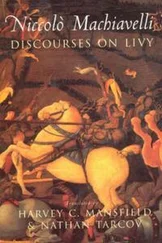But to enable a prince to form an opinion of his servant there is one test which never fails; when you see the servant thinking more of his own interests than of yours, and seeking inwardly his own profit in everything, such a man will never make a good servant, nor will you ever be able to trust him; because he who has the state of another in his hands ought never to think of himself, but always of his prince, and never pay any attention to matters in which the prince is not concerned.
On the other hand, to keep his servant honest the prince ought to study him, honouring him, enriching him, doing him kindnesses, sharing with him the honours and cares; and at the same time let him see that he cannot stand alone, so that many honours may not make him desire more, many riches make him wish for more, and that many cares may make him dread chances. When, therefore, servants, and princes towards servants, are thus disposed, they can trust each other, but when it is otherwise, the end will always be disastrous for either one or the other.
Chapter XXIII
How Flatterers Should be Avoided
I do not wish to leave out an important branch of this subject, for it is a danger from which princes are with difficulty preserved, unless they are very careful and discriminating. It is that of flatterers, of whom courts are full, because men are so self–complacent in their own affairs, and in a way so deceived in them, that they are preserved with difficulty from this pest, and if they wish to defend themselves they run the danger of falling into contempt. Because there is no other way of guarding oneself from flatterers except letting men understand that to tell you the truth does not offend you; but when every one may tell you the truth, respect for you abates.
Therefore a wise prince ought to hold a third course by choosing the wise men in his state, and giving to them only the liberty of speaking the truth to him, and then only of those things of which he inquires, and of none others; but he ought to question them upon everything, and listen to their opinions, and afterwards form his own conclusions. With these councillors, separately and collectively, he ought to carry himself in such a way that each of them should know that, the more freely he shall speak, the more he shall be preferred; outside of these, he should listen to no one, pursue the thing resolved on, and be steadfast in his resolutions. He who does otherwise is either overthrown by flatterers, or is so often changed by varying opinions that he falls into contempt.
I wish on this subject to adduce a modern example. Fra Luca, the man of affairs to Maximilian, [45] Maximilian I, born in 1459, died 1519, Emperor of the Holy Roman Empire. He married, first, Mary, daughter of Charles the Bold; after her death, Bianca Sforza; and thus became involved in Italian politics.
the present emperor, speaking of his majesty, said: He consulted with no one, yet never got his own way in anything. This arose because of his following a practice the opposite to the above; for the emperor is a secretive man—he does not communicate his designs to any one, nor does he receive opinions on them. But as in carrying them into effect they become revealed and known, they are at once obstructed by those men whom he has around him, and he, being pliant, is diverted from them. Hence it follows that those things he does one day he undoes the next, and no one ever understands what he wishes or intends to do, and no one can rely on his resolutions.
A prince, therefore, ought always to take counsel, but only when he wishes and not when others wish; he ought rather to discourage every one from offering advice unless he asks it; but, however, he ought to be a constant inquirer, and afterwards a patient listener concerning the things of which he inquired; also, on learning that any one, on any consideration, has not told him the truth, he should let his anger be felt.
And if there are some who think that a prince who conveys an impression of his wisdom is not so through his own ability, but through the good advisers that he has around him, beyond doubt they are deceived, because this is an axiom which never fails: that a prince who is not wise himself will never take good advice, unless by chance he has yielded his affairs entirely to one person who happens to be a very prudent man. In this case indeed he may be well governed, but it would not be for long, because such a governor would in a short time take away his state from him.
But if a prince who is not inexperienced should take counsel from more than one he will never get united counsels, nor will he know how to unite them. Each of the counsellors will think of his own interests, and the prince will not know how to control them or to see through them. And they are not to found otherwise, because men will always prove untrue to you unless they are kept honest by constraint. Therefore it must be inferred that good counsels, whencesoever they come, are born of the wisdom of the prince, and not the wisdom of the prince from good counsels.
Chapter XXIV
Why the Princes of Italy Have Lost Their States
The previous suggestions, carefully observed, will enable a new prince to appear well established, and render him at once more secure and fixed in the state than if he had been long seated there. For the actions of a new prince are more narrowly observed than those of an hereditary one, and when they are seen to be able they gain more men and bind far tighter than ancient blood; because men are attracted more by the present than by the past, and when they find the present good they enjoy it and seek no further; they will also make the utmost defence of a prince if he fails them not in other things. Thus it will be a double glory for him to have established a new principality, and adorned and strengthened it with good laws, good arms, good allies, and with a good example; so will it be a double disgrace to him who, born a prince, shall lose his state by want of wisdom.
And if those seigniors are considered who have lost their states in Italy in our times, such as the King of Naples, the Duke of Milan, and others, there will be found in them, firstly, one common defect in regard to arms from the causes which have been discussed at length; in the next place, some one of them will be seen, either to have had the people hostile, or if he has had the people friendly, he has not known how to secure the nobles. In the absence of these defects states that have power enough to keep an army in the field cannot be lost.
Philip of Macedon, not the father of Alexander the Great, but he who was conquered by Titus Quintius, had not much territory compared to the greatness of the Romans and of Greece who attacked him, yet being a warlike man who knew how to attract the people and secure the nobles, he sustained the war against his enemies for many years, and if in the end he lost the dominion of some cities, nevertheless he retained the kingdom.
Therefore, do not let our princes accuse fortune for the loss of their principalities after so many years' possession, but rather their own sloth, because in quiet times they never thought there could be a change (it is a common defect in man not to make any provision in the calm against the tempest), and when afterwards the bad times came they thought of flight and not of defending themselves, and they hoped that the people, disgusted with the insolence of the conquerors, would recall them. This course, when others fail, may be good, but it is very bad to have neglected all other expedients for that, since you would never wish to fall because you trusted to be able to find someone later on to restore you. This again either does not happen, or, if it does, it will not be for your security, because that deliverance is of no avail which does not depend upon yourself; those only are reliable, certain, and durable that depend on yourself and your valour.
Читать дальше












